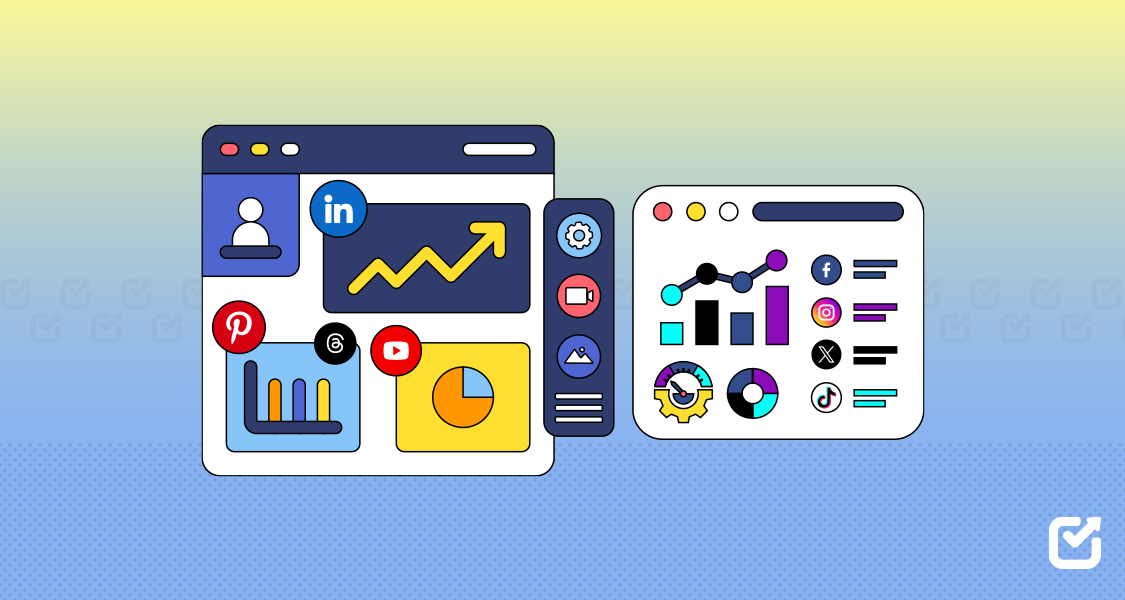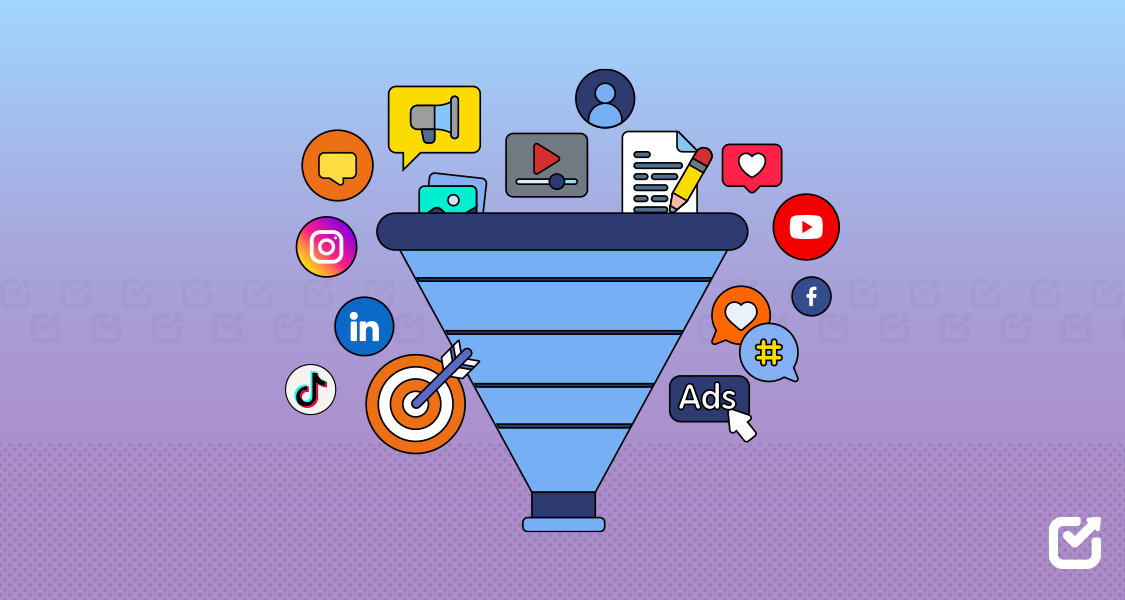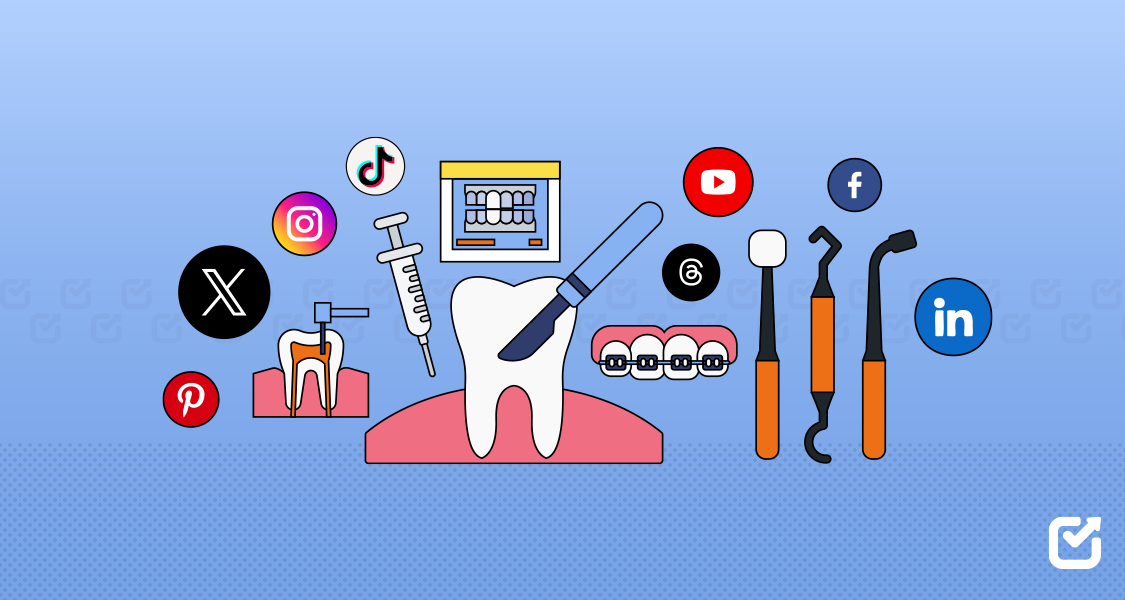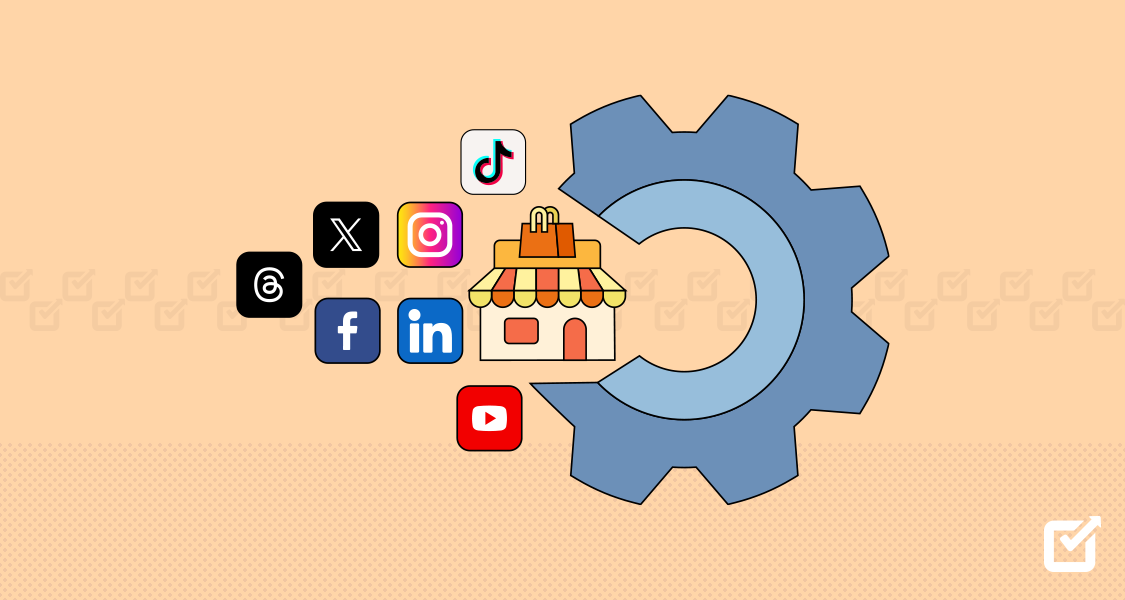Tired of switching between apps to check your social media performance?
There is an easier way.
A social media analytics dashboard puts all your important numbers—likes, shares, clicks, and messages—into one simple view.
You don’t have to open different tools or search through reports anymore.
Everything you need is right in front of you, in real time.
In 2025, more than 5 billion people will be using social media around the world.
That’s why tracking your content and knowing what works is more important than ever.
A good dashboard helps you understand your posts, make better choices, and get better results.
In this blog, you will learn what a social media analytics dashboard is, why it’s useful, and what to look for when choosing one.
We’ll also show you how Social Champ’s analytics dashboard makes tracking, reporting, and growing your brand easy in 2025.
Let’s get started!
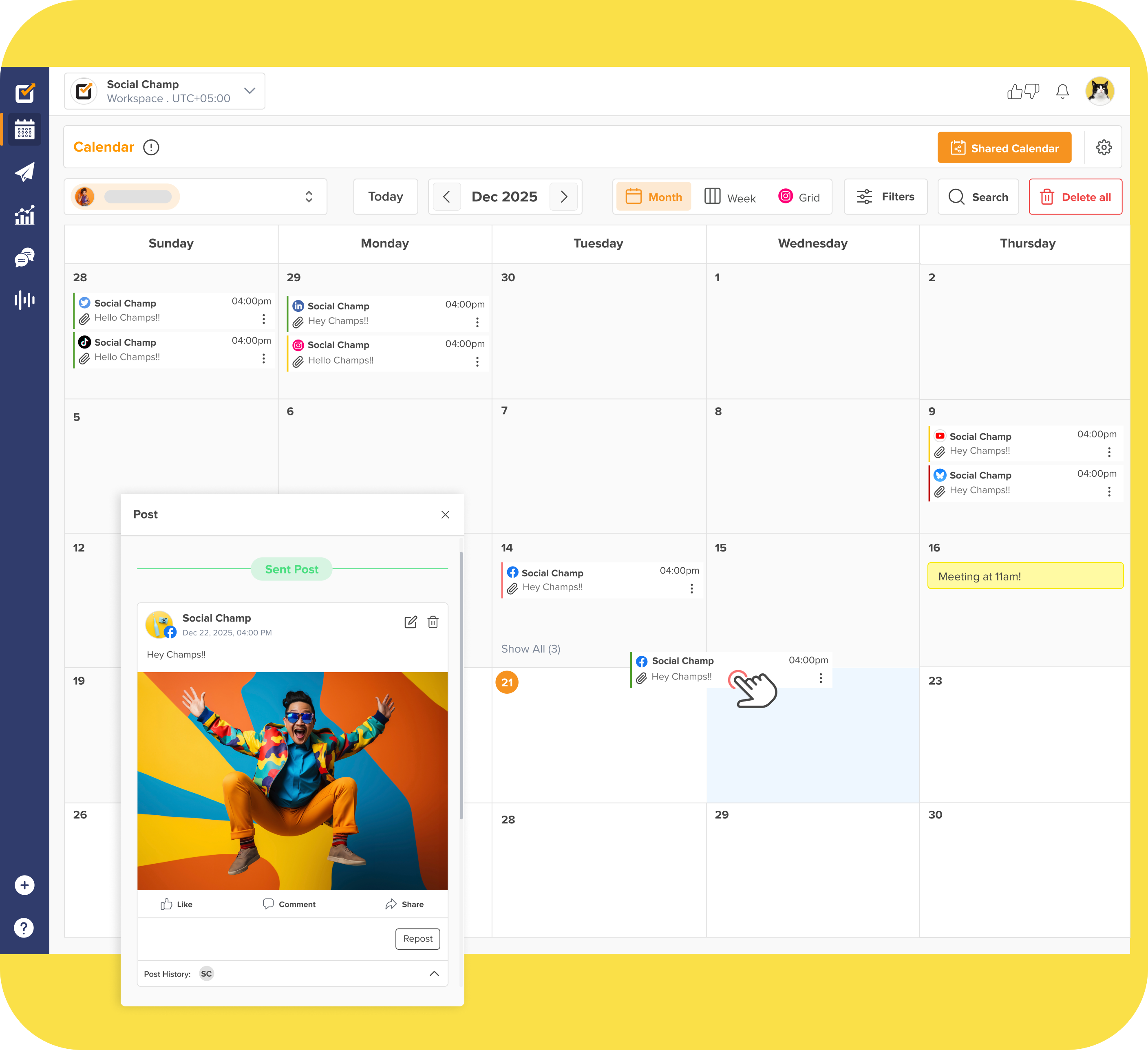
Why Use Multiple Tools When One Dashboard Does It All?
Social Champ helps you monitor engagement, track trends, and optimize your strategy—all from a single, easy-to-use platform.
Key Takeaways
- A social media analytics dashboard helps track performance, measure engagement, and refine strategies with real-time insights.
- Key metrics like awareness, engagement, and conversions are essential for assessing social media success.
- Must-have features include real-time tracking, multi-platform reporting, sentiment analysis, and AI-driven automation.
- Automation in analytics saves time, improves accuracy, and helps make data-driven marketing decisions.
- Choosing the right dashboard involves evaluating customization, integrations, and reporting capabilities.
- Social Champ simplifies social media analytics with automated reports, AI-powered insights, and performance tracking.
What Is a Social Media Analytics Dashboard?
A Social Media Analytics Dashboard is a centralized platform that consolidates all your social media metrics across various networks, providing a comprehensive view of your performance.
It allows you to track, measure, and analyze the effectiveness of your posts, campaigns, customer interactions, and community engagement in real time.
A dashboard gives you a single place to view everything instead of toggling between different platforms and manually compiling data.
It lets you monitor key performance indicators (KPIs) such as engagement rates, follower growth, and content reach.
The Importance of a Strategic Social Media Analytics Dashboard
In an era driven by digital engagement, having a strategic social media analytics dashboard is crucial for several reasons:
- Data-Driven Decision Making:
With real-time insights, you can make informed decisions about your social media strategies. Understanding which content resonates with your audience enables you to tailor future posts for maximum engagement. - Efficiency and Time Management: Managing multiple social media accounts can be time-consuming. A centralized dashboard streamlines this process by allowing you to schedule posts, monitor interactions, and analyze performance from a single platform, thereby enhancing productivity.
- Enhanced ROI: By closely monitoring metrics such as conversion rates and audience demographics, you can optimize your campaigns to achieve better returns on investment. Identifying what works and what doesn’t allows for more effective allocation of resources.
- Trend Identification: Staying ahead of market trends is vital for maintaining a competitive edge. A robust analytics dashboard helps you identify emerging trends, popular topics, and shifting audience preferences, enabling you to adapt your content strategy accordingly.
- Comprehensive Reporting: Generating reports manually can be prone to errors and inconsistencies. An analytics dashboard automates this process, providing accurate and customizable reports that can be easily shared with stakeholders to demonstrate the impact of your social media efforts. Adding a strategic social media monitoring dashboard to your marketing toolkit makes managing your online presence much easier. It also helps you make data-backed decisions that boost growth and engagement.
Featured Article: Planable Pricing vs. Social Champ: Which Offers Better Value in 2025?
Key Metrics to Track for Social Media Success
Tracking social media metrics is essential to understanding how well your content and campaigns are performing.
These metrics provide insights into audience behavior, content effectiveness, and overall brand visibility.
Without data, you’re just guessing what works.
But with the right metrics, you can refine your strategy, boost engagement, and maximize conversions.
There are three main types of social media metrics you should focus on: Awareness Metrics, Engagement Metrics, and Conversion Metrics.
Each category serves a different purpose in measuring success, from brand visibility to audience interaction and business impact.
Awareness Metrics
These metrics measure how well your content reaches and attracts an audience.
They help determine your brand’s visibility and overall presence on social media.
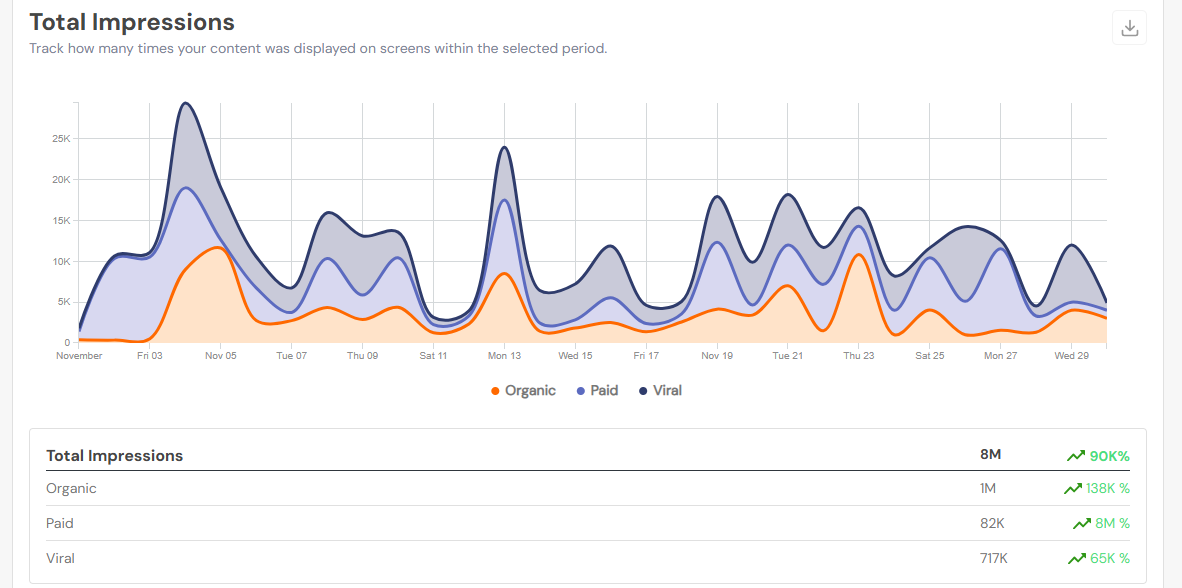
- Impressions: The number of times your content appears on someone’s screen, whether they engage with it or not. High impressions indicate strong content distribution.
- Reach: The total number of unique users who have seen your content. This helps measure how far your posts are spreading.
- Follower Growth: Tracks how many new followers you gain over time, indicating brand interest and audience expansion.
- Share of Voice (SOV): Compares how often your brand is mentioned in discussions versus competitors, giving insight into brand authority.
- Brand Mentions: Counts the number of times your brand is tagged or referenced in posts, comments, and reviews. More mentions indicate stronger brand awareness.
Engagement Metrics
Engagement metrics show how actively your audience interacts with your content.
High engagement often means your content resonates with users.
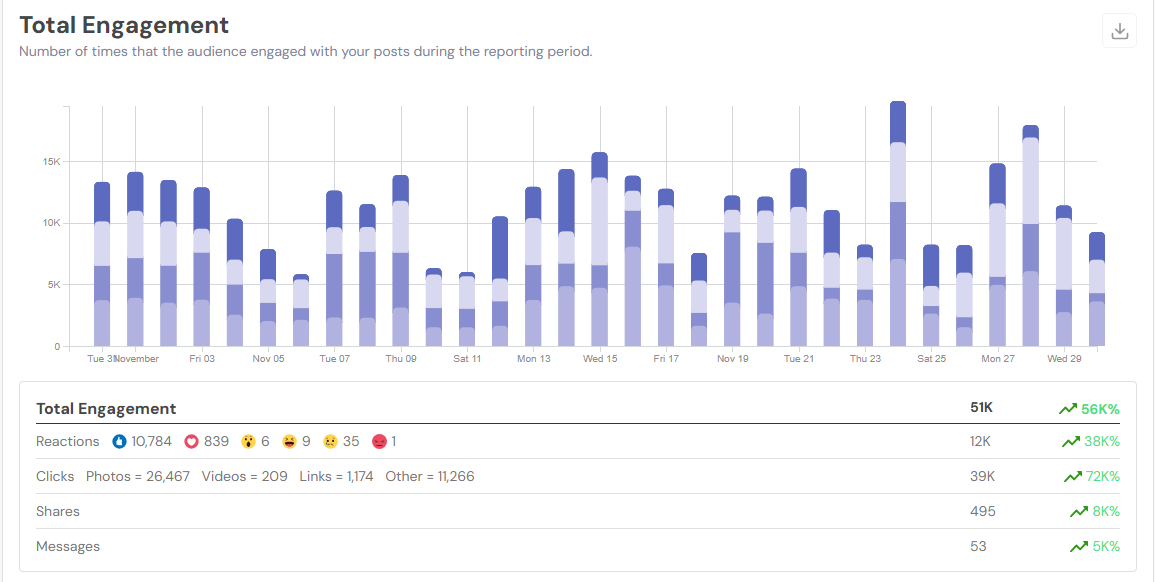
- Likes/Reactions: Measures how many people positively interact with your post. A higher number signals content appeal.
- Comments: Tracks user responses to your posts. More comments suggest strong audience interest and conversation.
- Shares/Retweets: The number of times users share your content with their followers. This expands your reach and boosts organic visibility.
- Click-Through Rate (CTR): The percentage of users who click on a link in your post compared to how many saw it. A high CTR means your call-to-action is effective.
- Video Views and watch Time Measure how long people watch your video content. The longer they stay, the more engaging your videos are.
- Save/Bookmark Rate: Tracks how often users save your posts to revisit later, indicating valuable or insightful content.
Conversion Metrics
Conversion metrics show how social media efforts contribute to actual business goals like sales, sign-ups, or lead generation.
- Conversion Rate: The percentage of users who complete a desired action (purchase, sign-up, download) after clicking on your content.
- Cost Per Conversion (CPC): Measures how much you spend to achieve a conversion. Lower CPC means a more cost-effective campaign.
- Return on Investment (ROI): Compares the revenue generated from social media efforts against the total investment. A positive ROI means your strategy is working.
- Number of Leads: Tracks the number of potential customers collected through social media forms, downloads, or sign-ups.
- Customer Acquisition Cost (CAC): The total cost of acquiring a new customer through social media marketing. A lower CAC means a more efficient strategy.
Must-Have Features of a Powerful Social Media Analytics Dashboard
A social media analytics dashboard is only as good as the insights it provides.
To truly optimize your strategy, you need a tool that goes beyond basic metrics and delivers real-time, AI-powered, and actionable data.
Whether engagement, audience sentiment, or ROI, the right features can make all the difference.
Here are the must-have features of a powerful social media reporting dashboard:
-
Real-Time Tracking for Instant Insights
Waiting days to analyze performance is outdated.
A strong dashboard offers real-time data tracking, allowing you to monitor post engagement, audience activity, and trends as they happen.
This enables quick adjustments to maximize results.
-
Multi-Platform Reporting in One Place
Managing multiple social media accounts can be overwhelming.
A good dashboard integrates data from platforms like Facebook, Instagram, Twitter, LinkedIn, and TikTok into a single, streamlined report, saving time and effort.
-
AI-Powered Sentiment Analysis
Understanding how your audience feels about your brand is crucial.
A social media metrics dashboard offering AI-driven sentiment analysis helps you gauge public perception by analyzing comments, reviews, and mentions to identify whether they are positive, negative, or neutral.
-
Customizable & Automated Reports
Manually compiling reports is time-consuming.
Look for a social media reporting dashboard that automates reporting and allows customization, so you can focus on interpreting insights rather than collecting data.
-
Audience Demographics & Behavior Tracking
To create content that resonates, you need to know your audience.
A robust dashboard provides detailed insights on age, location, interests, and online behavior, helping you tailor campaigns for better engagement.
-
Competitive Benchmarking
Want to see how you compare to competitors?
A benchmarking feature in a social media reporting dashboard lets you track industry trends, analyze competitor performance, and refine your strategy to stay ahead.
-
AI-Driven Performance Predictions
Predictive analytics, powered by AI, helps you forecast which types of content will perform best, the optimal posting times, and engagement trends, allowing you to stay ahead of the curve.
-
ROI & Conversion Tracking
Beyond likes and shares, a great analytics tool tracks how social media efforts impact sales, website traffic, and customer conversions, ensuring that your strategy drives real business results.
How AI and Automation Enhance Social Media Analytics
AI and automation have revolutionized social media analytics by eliminating guesswork and providing smarter, faster insights.
AI-powered dashboards analyze massive amounts of data in seconds, uncover hidden trends, and suggest content strategies based on audience behavior.
Automation simplifies reporting, schedules performance reviews, and even recommends the best times to post.
Social Champ’s advanced analytics dashboard brings all these features together, helping you track, optimize, and dominate your social media strategy effortlessly.
How to Choose the Right Social Media Analytics Dashboard in 2025
With countless social media analytics tools available, choosing the right dashboard can feel overwhelming.
The best analytics dashboard should not only track essential metrics but also provide actionable insights, streamline reporting, and integrate seamlessly with your marketing strategy.
Here’s how to select the best social media analytics dashboard for your business in 2025.
-
Identify Your Social Media Goals
Before diving into features, define what you want to achieve with your social media metrics dashboard.
Are you looking to improve engagement, track conversions, measure ROI, or monitor brand sentiment?
Understanding your objectives helps narrow down your choices to dashboards that align with your needs.
For instance, if your primary goal is lead generation, choose a dashboard with conversion tracking.
If brand awareness is your focus, look for tools that specialize in reach and impression analytics.
-
Ensure Multi-Platform Integration
Your audience is likely active on multiple social media platforms, so your analytics dashboard should support all the major networks you use, including:
- Twitter/X
- YouTube
- TikTok
Some dashboards also integrate with ad platforms like Facebook Ads Manager and Google Ads, making it easier to track both organic and paid performance in one place.
-
Look for Real-Time Tracking & Alerts
Social media moves fast—waiting days for reports means you might miss critical engagement opportunities.
A top-tier analytics dashboard should offer real-time tracking of key metrics like reach, impressions, engagement, and mentions.
Additionally, automated alerts for sudden spikes in engagement or negative sentiment can help you react instantly to trends, viral moments, or potential PR crises.
-
AI-Powered Insights & Predictive Analytics
AI is revolutionizing social media analytics.
Instead of just showing past performance, modern dashboards use machine learning to:
- Predict future trends based on past data
- Suggest optimal posting times for maximum engagement
- Identify content that will likely perform well
- Analyze audience sentiment and detect shifts in brand perception
Choosing an AI-driven dashboard means getting data-backed recommendations instead of relying on guesswork.
-
Customizable Reports & Data Visualization
Raw data can be overwhelming, which is why a great analytics dashboard should present insights through clear visuals, charts, and customizable reports.
- Look for dashboards that allow you to:
- Generate custom reports tailored to your KPIs
- Export data in multiple formats (PDF, Excel, Google Sheets)
- Use interactive graphs to spot trends quickly
This is especially useful for teams, agencies, or businesses that need to present data to stakeholders.
-
Competitor Analysis & Benchmarking
Understanding your brand’s performance in isolation isn’t enough.
The best analytics dashboards include competitor tracking to measure:
- How does your engagement compare to industry leaders
- Share of voice in your niche
- Best-performing content types in your industry
This allows you to stay ahead of competitors and refine your strategy based on industry trends.
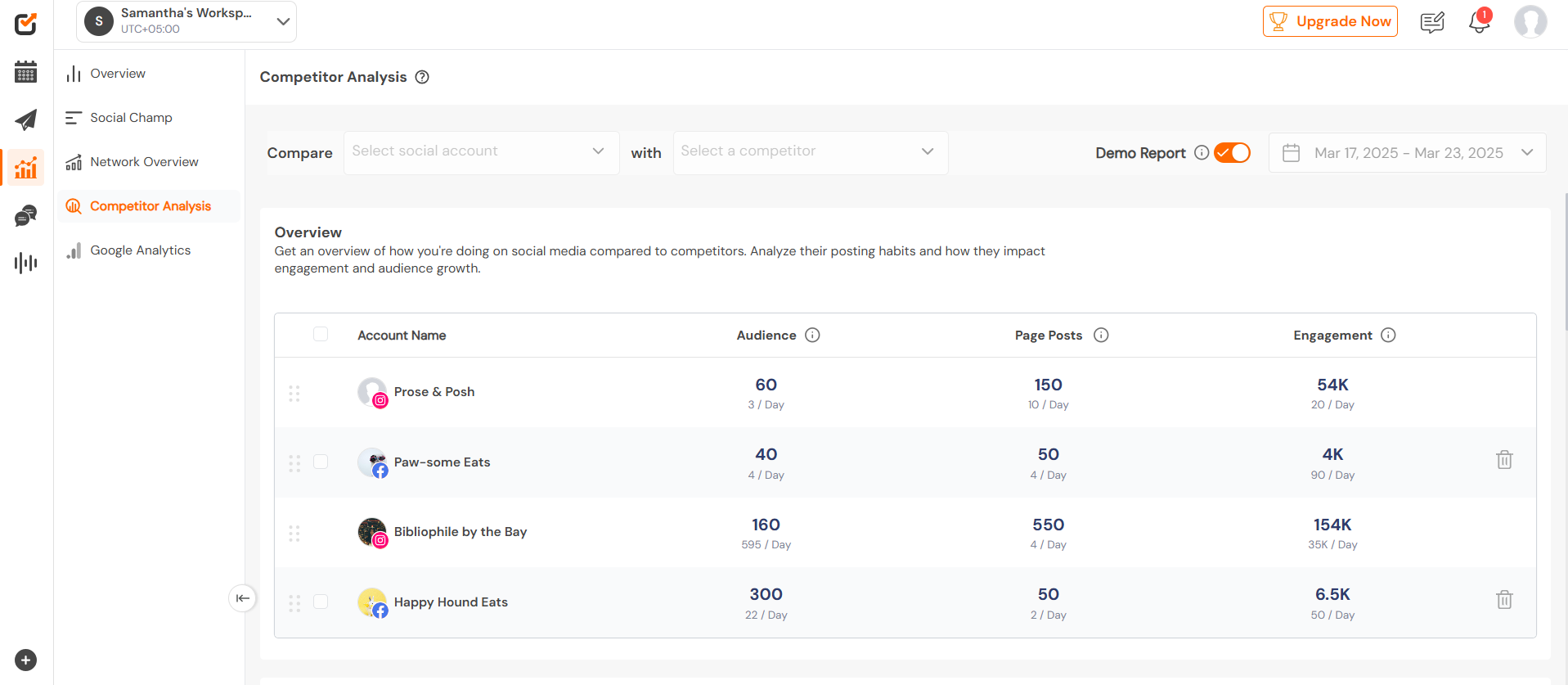
Competitor Analysis Feature at Social Champ -
Audience Demographics & Behavior Analysis
Knowing who engages with your content helps you refine your strategy.
A good dashboard should provide:
- Demographic data (age, gender, location, interests)
- Behavior insights (best times they are active, content preferences)
- Engagement trends to optimize your posting schedule
If your dashboard includes AI-driven audience segmentation, it can even suggest personalized content strategies for different user groups.
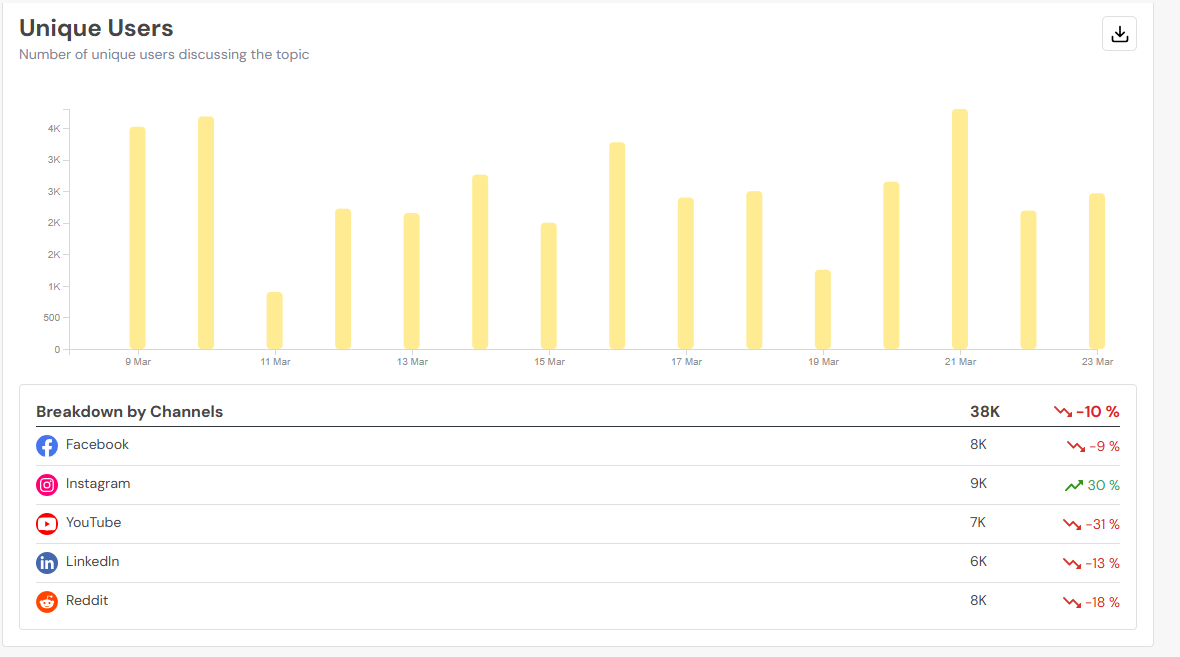
Social Champ Unique User Analytics -
User-Friendly Interface & Team Collaboration
A complex, cluttered dashboard can slow down decision-making.
Look for a clean, intuitive interface that allows you to find insights quickly.
For teams and agencies, the dashboard should also support:
- Multi-user access with role-based permissions
- Collaboration tools to share reports and insights
- Integration with project management tools (Slack, Trello, Asana)
-
Pricing & Scalability
While it’s tempting to opt for feature-rich dashboards, ensure that the tool fits within your budget and offers a clear return on investment.
Some platforms provide tiered pricing or free trials for their social media analytics dashboards, allowing you to assess their value before committing.
Consider:
- Free trials or demos before committing
- Whether pricing scales with your business needs
- Hidden costs like extra fees for additional users or platforms
-
Read Reviews and Seek Recommendations
Research user reviews and case studies to understand the experiences of other businesses.
Platforms like Reddit can offer real-world insights into the effectiveness of various tools.
Featured Article: Reel vs Story: Understanding the Key Differences and When to Use Them
Why Social Champ Is the Ultimate Social Media Analytics Dashboard
The ideal dashboard depends on your business needs, but Social Champ’s Analytics Dashboard ticks all the right boxes.
It offers multi-platform tracking, AI-powered insights, competitor analysis, and automation—all in one user-friendly interface.
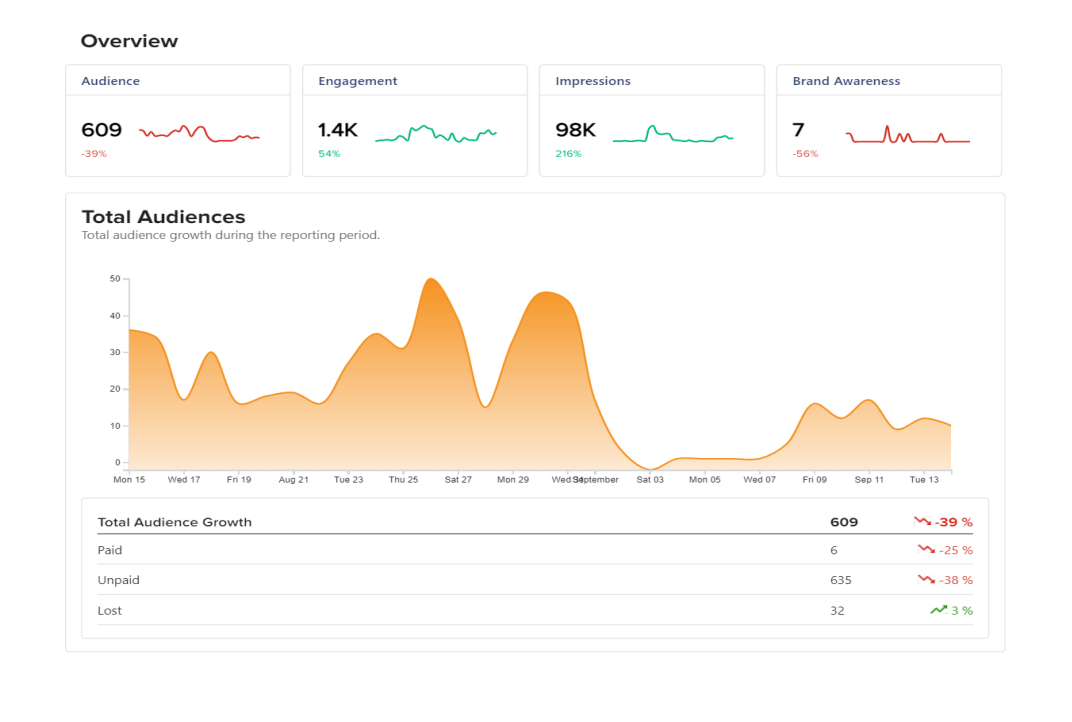
Let’s explore in detail what Social Champ’s social media analytics dashboard does for you:
-
Real-Time Performance Tracking at Your Fingertips
Social media moves fast, and so should your analytics.
Social Champ provides real-time data on engagement, reach, and audience interactions across platforms like Facebook, Instagram, LinkedIn, Twitter/X, Pinterest, and Google Business Profile.
With instant updates, you can react quickly to trends, capitalize on viral moments, and adjust campaigns on the go.
-
Automated & Custom Reports for Smarter Decision-Making
Tired of manually compiling reports? Social Champ automates the entire process.
You can generate custom reports based on the metrics that matter most, export them in various formats (PDF, CSV), and even schedule weekly or monthly reports to be sent directly to your inbox.
Whether you’re a solo entrepreneur or part of a marketing team, these reports save time and provide clear, data-driven insights.
-
AI-Powered Insights to Optimize Your Strategy
Numbers alone don’t drive success—AI-driven recommendations do.
Social Champ’s analytics dashboard helps you:
- Predict optimal posting times to boost engagement.
- Analyze audience sentiment and social listening to understand how your brand is perceived.
- Track competitor performance to stay ahead in your industry.
With AI-powered analytics, you’re not just looking at past performance—you’re making smarter decisions for the future.
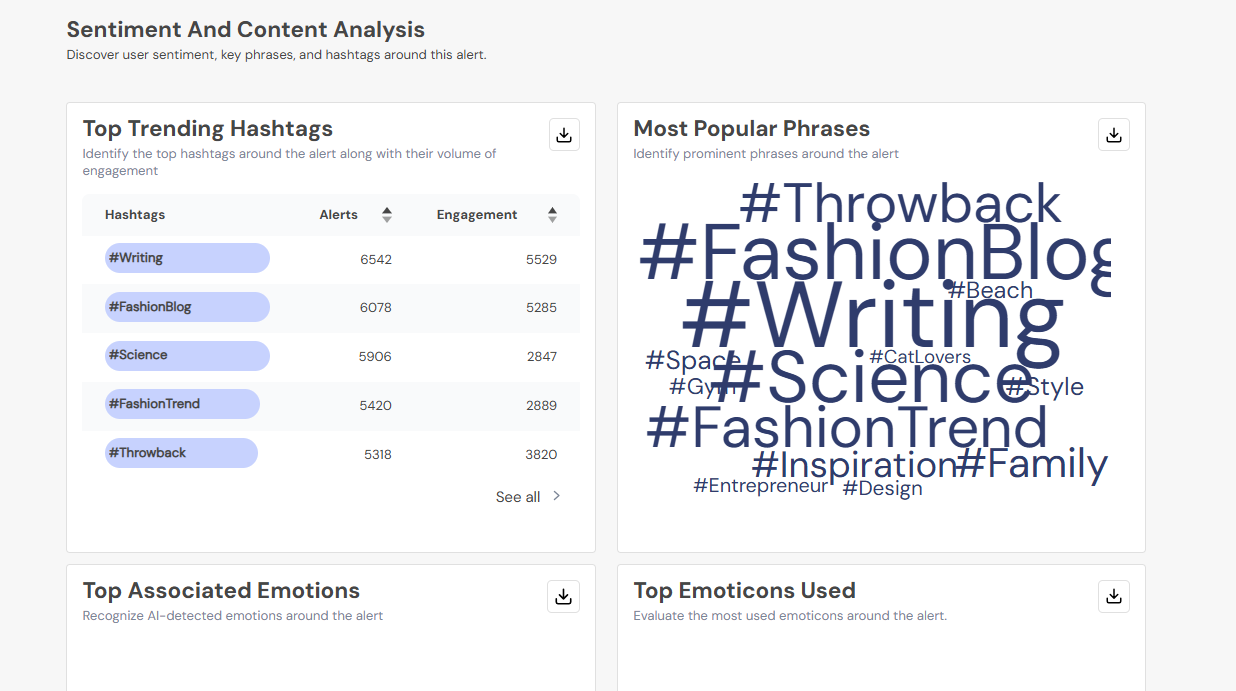
Sentiment and Content Analysis at Social Champ -
Multi-Platform Performance Tracking in One Place
Managing multiple social accounts?
Social Champ consolidates data from all your social media platforms into a single, easy-to-navigate dashboard.
Instead of switching between apps, you get a unified view of your brand’s performance across Facebook, Instagram, Twitter/X, LinkedIn, and more.
You can also track both organic and paid campaigns, helping you measure the true impact of your social media marketing efforts.
-
Team Collaboration & Role-Based Access
Social media management is rarely a one-person job.
Social Champ allows multiple team members to access analytics, set role-based permissions, and collaborate seamlessly.
Social Champ is designed to make social media analytics simple, actionable, and results-driven.
Whether you need real-time insights, AI-powered recommendations, or automated reports, this all-in-one tool helps you track, measure, and optimize like a pro.

Struggling to Track Social Media Performance? Not With Social Champ!
Get real-time insights, automated reports, and AI-driven recommendations—all in one dashboard.
Automating Social Media Reporting for Smarter Decision-Making
An average marketer spends between 10 to 16 hours a week on routine tasks.
However, automation changes the game by delivering accurate, real-time insights without the hassle of manual data collection.
With automated reporting, you save hours of work, ensure precision, and get the insights you need—exactly when you need them.
How Automation Saves Time & Improves Accuracy
Social media analytics require continuous monitoring, but manually pulling data from multiple platforms can lead to delays, inconsistencies, and overlooked trends.
Automation eliminates these challenges by:
- Generating reports instantly—no more manual data collection.
- Reducing errors—ensuring you get accurate insights.
- Tracking trends over time—so you can refine your strategy with data-driven decisions.
According to recent stats, marketers who automate reporting save up to 6 hours per week, allowing them to focus on strategy rather than spreadsheets.
Social Champ’s Automated Reporting: Smarter, Faster, and Easier
Social Champ simplifies analytics tracking with powerful, customizable reporting tools that make it easy to stay on top of your social media performance.
- Scheduled Reports: Set up automated reports to be delivered daily, weekly, or monthly—straight to your inbox.
- Customizable Dashboards: Choose the key metrics that matter to you and generate reports that highlight performance across multiple platforms.
- AI-Powered Insights: Get AI-driven analytics that not only track past performance but also help you compare your weekly and monthly performance.

Why Guess When You Can Measure?
Track engagement, conversions, and trends effortlessly with Social Champ’s analytics tools.
Final Thoughts
A social media analytics dashboard helps you track performance, measure impact, and refine your strategy with real data.
Instead of relying on guesswork, you get clear insights into what works and what doesn’t.
Social Champ simplifies this process with real-time tracking, automated reports, and AI-powered recommendations.
With everything in one place, you can focus on improving engagement, boosting conversions, and staying ahead of the competition.
Start using Social Champ’s analytics dashboard to make smarter marketing decisions and achieve better results.
